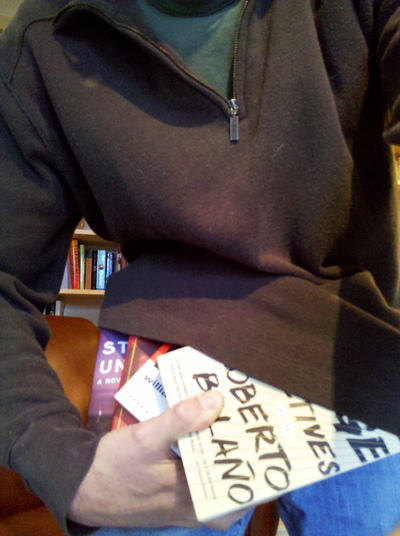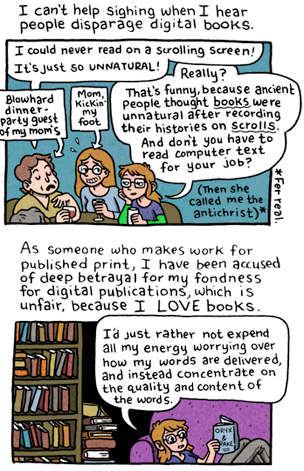Creating some good healthy competition for the likes of Amazon and iBookstore, Google has opened its online ebook store. Ebooks are available for Android, iPhone, iPad, iPod and Web reading. You can keep your ebooks in your Google library for access from different devices and readers, always maintaining sync with where you left off. Downloads are offered in Adobe PDF or EPUB formats. Google keeps insisting that its books are not compatible with the Kindle, even though they offer PDFs which are easily supported by later model Kindles. I’m not sure what this double-speak is about. You can also convert Google’s EPUB format to Kindle-friendly MOBI format by going over to download a free copy of the Calibre ebook management software that enables simple conversion and transfer. I downloaded a free Google ebook of Sherlock Holmes stories and converted it for my Kindle in seconds. The result looks just like a book purchased from Amazon for my Kindle. In fact, some of the books I’ve purchased directly from Amazon have shown such grotesque typos and formatting errors that I wonder if anyone is doing any proofreading at all anymore. That’s mainly the fault of the ebook publishers, but Amazon could certainly crack down on what amounts to seriously broken merchandise. Competition from the Google juggernaut is a welcome bit of relief.
Google is capitalizing on their enormous library of scanned books for some of their offerings, especially in the free download area. Most importantly however, Google is allowing independent bookstores to sell Google ebooks through their own retail sites. The revenue from such sales is shared with the bookstore owners. I also understand that the revenue split with publishers is very fair, with the publishers getting 70% and 30% going to Google.


 There’s been a huge battle of the ebooks going on between Amazon.com and publisher Macmillan. Last week, Macmillan, in response to rotten Apple’s announcement of $14 and $15 ebooks on its new iPad, insisted that Amazon give Macmillan the right to choose its own higher ebook pricing for the Kindle ereader device. Amazon got peevish about the deal and simply de-listed all of Macmillan’s books. I thought that was a nice nasty smack in the kisser for a doomed publisher at the time. I was feeling so good about Amazon and its Kindle and so snitty about Apple’s iPad that I was within 60 minutes of plunking my digital money down on a brand new shiny Kindle. But wait! Amazon caved! They rolled over and gave Macmillan what it wanted.
There’s been a huge battle of the ebooks going on between Amazon.com and publisher Macmillan. Last week, Macmillan, in response to rotten Apple’s announcement of $14 and $15 ebooks on its new iPad, insisted that Amazon give Macmillan the right to choose its own higher ebook pricing for the Kindle ereader device. Amazon got peevish about the deal and simply de-listed all of Macmillan’s books. I thought that was a nice nasty smack in the kisser for a doomed publisher at the time. I was feeling so good about Amazon and its Kindle and so snitty about Apple’s iPad that I was within 60 minutes of plunking my digital money down on a brand new shiny Kindle. But wait! Amazon caved! They rolled over and gave Macmillan what it wanted. Cartoonist Lucy Knisley has a comic online called
Cartoonist Lucy Knisley has a comic online called